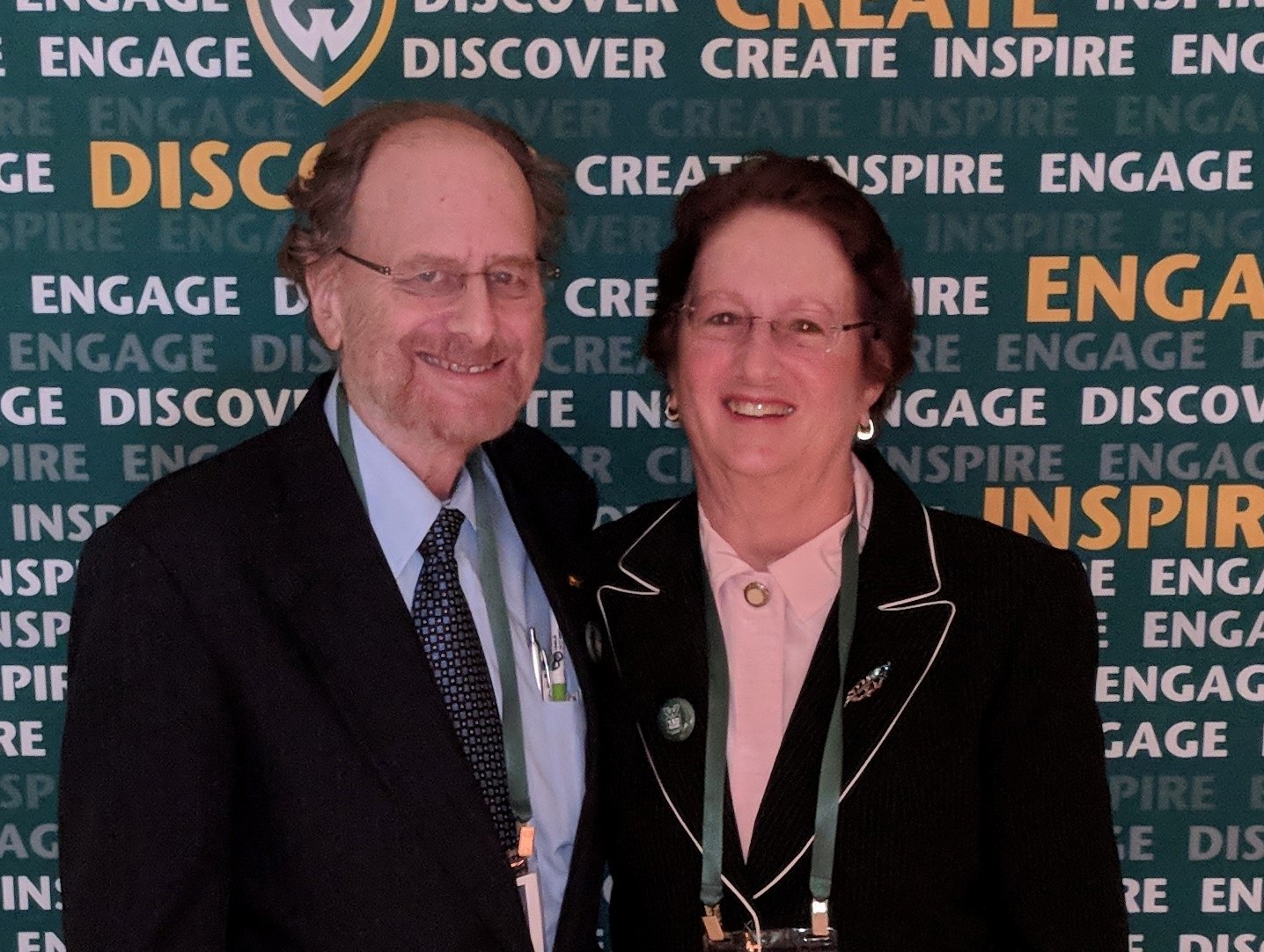Cultivating an environment for research creativity, Dr. Ram establishes a fund for graduate research
Oct. 31, 2018
"Back to the mud!" is not a catchphrase often used by School of Medicine faculty, but for Jeffrey Ram, Ph.D., the aquatic research laboratory requires him to put on his waders and get his hands dirty. During his tenure with the Department of Physiology, Dr. Ram has dedicated time and resources to exploring the surrounding aquatic ecosystems for organisms that he studies to advance scientific knowledge in neuroscience, muscle physiology, biodiversity and environmental factors on human health. The myriad of species Dr. Ram examines provide a range of investigatory opportunities and lead to an interdisciplinary mindset with medical outcomes.
"We can learn a lot from aquatic organisms," said Dr. Ram, "and we can use these organisms as models for biomedical discoveries. Wayne State is in such a prime location to examine the Great Lakes environment for the purpose of improving human health and having a positive impact."
Currently examining water mites, Dr. Ram sees great potential for these tiny creatures to have a positive influence on the environmental factors of health. Dr. Ram credits Adrian Vasquez, Ph.D. '18 with sparking this interest.
"Water mites prey on mosquito larvae, and mosquitos are a primary carrier for many devastating diseases such as the West Nile virus. There is great potential in this area," Dr. Ram stated. "We would not have started this line of investigation if it weren't for Dr. Vasquez."
Dr. Vasquez's research during his time at Wayne State University School of Medicine exemplifies Dr. Ram's beliefs about graduate student research, funding and philanthropic support. In his lab, Dr. Ram works hard to cultivate an environment where students may pursue their research passions.
"Flexibility is important, and I think students should have the autonomywith faculty mentorship and guidance, of courseto follow their interests. A few decades ago, it was easier to provide students with fellowships and funds that were less restrictive," said Dr. Ram.
Dr. Ram believes that creativity, nimbleness, and flexibility are all essential components for graduate student success.
"When a student drives the project from start to finish, that student then has the means to exemplify why they would be the perfect fit for future career opportunities," Dr. Ram stated. "These positions allow students to choose a research topic based on their own scientific creativity."
A fluid, open, dynamic research environment is key, according to Dr. Ram, for students to develop as well-rounded scientists and medical researchers. In order to cultivate such an atmosphere, Dr. Ram decided to establish the Aquatic Physiology Support Fund in the Department of Physiology at the School of Medicine.
"I wanted to establish a fund that would provide resources to a graduate student and hopefully inspire them to actively explore their area of interest," said Dr. Ram.
With the nature of grant funding, higher education and how these two pieces work for investigatory opportunities, Dr. Ram also views philanthropy as an essential component in graduate education.
"These funds support students, and they give them a wider scope in which to find their research passions. I truly believe that philanthropy gives researcherswhether graduate students, faculty or the likethe ability to go in new directions which have not yet been proven but may be worthwhile," Dr. Ram stated.
Through his support, Dr. Ram hopes to have a positive impact on future generations of scientists and medical researchers.
"Gifts to the school such as endowed chairs, professorships, research funds and graduate student support allow talented scientists to achieve great things," stated Dr. Ram. "I would like to see others join me and give to the school in this way. An endowed professorship in the Department of Physiology would go a long way, especially because these funds exist in perpetuity. I would personally invest to see something like this come to fruition."
In the meantime, Dr. Ram will roll up his sleeves, step into Belle Isle's bountiful lakes and continue to educate students, his peers and the public about the importance of aquatic research on human health and wellbeing.
To learn more about how to support research at the School of Medicine, contact Jon Goldstein at 313-577-3033 or jgoldste@med.wayne.edu.